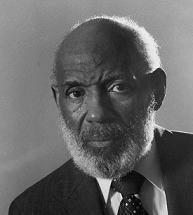

(AP) A former student at the University of Mississippi pleaded guilty Thursday to a misdemeanor charge arising from a noose placed on a statue of civil rights activist James Meredith.
At a brief court appearance, Graeme Phillip Harris pleaded guilty to a charge of threatening force to intimidate African-American students and employees at the university.
The noose and a former Georgia state flag carrying the Confederate battle emblem were placed on the James Meredith statue on the Ole Miss campus in Oxford in February 2014. It appeared to be a symbolic jab at Ole Miss’ tortured racial past. When a court ordered the university to admit Meredith in 1962, the African-American student had to be escorted onto campus by armed federal agents. The agents were attacked in an all-night riot that claimed two lives and was ultimately quelled by federal troops.
Harris, of Alpharetta, Georgia, faces up to a year in prison and a fine of up to $100,000. Prosecutors said Harris won’t be prosecuted for a second charge listed on his March indictment — conspiracy to violate civil rights — which would carry up to 10 years in prison and a fine of up to $250,000 in event of any conviction.
U.S. District Judge Michael Mills is expected to sentence Harris later.
David Hill, a lawyer for Harris, said on Thursday that Harris wanted to take responsibility for his actions. The lawyer had said previously that his client was present in 2014, but did not place the noose.
Harris, who is white, was an Ole Miss student when the noose was placed on the statue but is no longer enrolled. The national office of Sigma Phi Epsilon fraternity suspended its Ole Miss chapter after three of the chapter’s members were accused of leaving the noose and flag on the Meredith statue. Names of the three students from Georgia were not released at the time.
Ole Miss officials have said that they turned the case over to federal prosecutors and deferred to their judgment. No one else has been charged in the case to date.
University spokesman Danny Blanton released a school statement Thursday expressing hopes that closure in the case would further the healing process.
“We’re thankful that this case has been brought to a resolution and responsibility has been accepted for this deplorable act. It is our hope that by bringing closure to this investigation we can begin the healing process for all those affected by the behavior that took place the morning of Feb. 16, 2014,” said Dr. Brandi Hephner LaBanc, vice chancellor for student affairs.
She added in the statement, “This further affirms that conduct of this nature will not be tolerated on our campus.”
The local district attorney said in 2014 that state charges wouldn’t be filed because no state laws were broken. Mississippi’s hate crime law requires an underlying crime for additional charges. Because the statue wasn’t marred or broken, prosecutors said vandalism charges didn’t apply.
Meredith, who is 81 and lives in Jackson, has criticized the lack of state prosecution of the men, saying black Mississippians shouldn’t still have to rely on federal authorities for justice. The moment he lived through in 1962 was one of a series of watershed moments in the civil rights struggle of that era.



